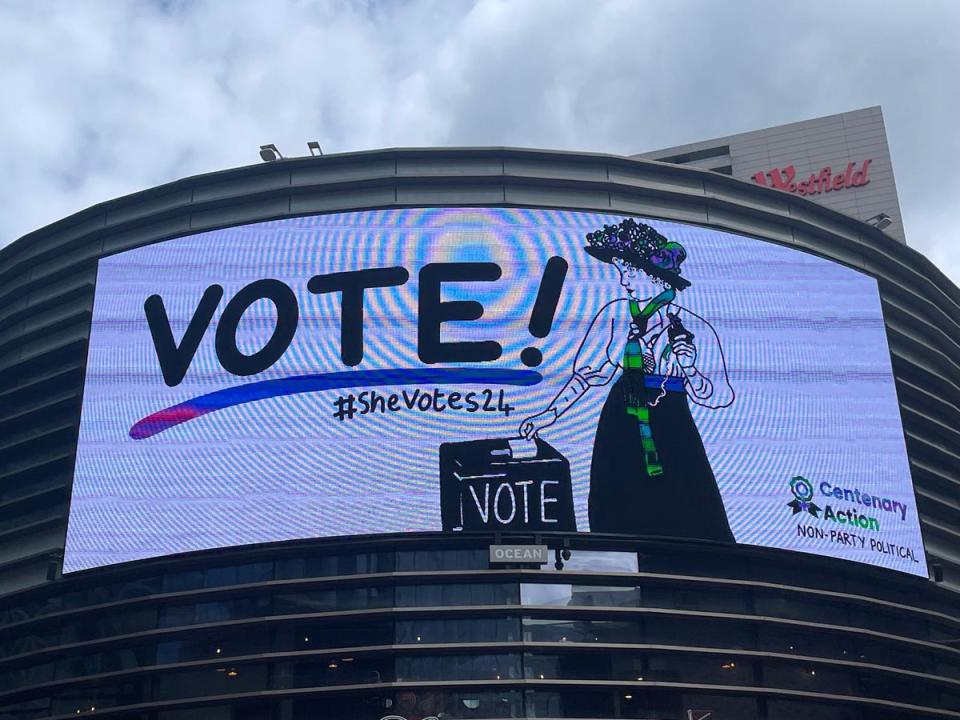Politicians see women’s issues as ‘afterthought’, suffragette Emmeline Pankhurst’s descendent warns

Politicians see women's issues as an “afterthought”, the great granddaughter of a suffragette trailblazer Emmeline Pankhurst has warned.
Professor Helen Pankhurst – granddaughter of socialist feminist writer Sylvia Pankhurst, and great granddaughter of Emmeline – told The Independent the political establishment comes to women when it “suits them”.
On Tuesday, the campaigner was at Westfield Shopping Centre in east London to launch #SheVotes24, an initiative to encourage women to vote in the general election on 4 July.
The scheme, spearheaded by Professor Pankhurst’s organisation Centenary Action, brings together more than 100 organisations campaigning for women’s issues and voices to be at the core of the election.
The Fawcett Society, Mumsnet, the Muslim Women’s Network and the National Federation of Women’s Institutes are among those involved.
Prof Pankhurst said: “Politicians use women’s issues for tactical gain. There is not enough attention to women’s interests. When it happens it is certain perspectives that are prioritised. Women’s issues are seen as an afterthought.
“The starting point is wrong, the starting point should be women make up 51 per cent of the electorate in all their diversity. They have specific priorities like addressing the gender pay gap, violence against women and childcare.”
Apathy, toxicity and negativity is creating a backwards step in gender equality.
Professor Helen Pankhurst
The campaigner, who founded Centenary Action, warned that the current government lacks a gendered approach, saying politicians overlook the fact women are disproportionately impacted by the cost-of-living crisis and social care policies.
“It makes me feel angry there is that lack of attention more than 100 years since women first got the vote,” Professor Pankhurst added.
“Representation matters. If you don’t have diversity at the heart of politics, it is biased to the perspectives of those in power. In this country, there is a bias toward white men of a certain age. I am really frustrated we only have 31 per cent of candidates who are women.”
Centenary Action has launched The Promise, a scheme to encourage business leaders and entrepreneurs to share information on how employees can register to vote or apply for a postal/proxy vote.
Campaigners are calling for workplaces to enable staff to cast their vote in the election by allowing them to work from home or giving them flexibility.

Research by the organisation found around three-quarters of women are planning to vote, while two in ten women believe political parties only think about women's issues for tactical gain.
Almost three in ten of the 500 women polled across the UK thought the political parties overlook the female vote altogether.
Professor Pankhurst said: “Apathy, toxicity and negativity is creating a backwards step in gender equality. We want to galvanise women to get out and vote, be at the heart of decision making and create a more equitable playing field.”
Women must be to the centre of policy making, rather than relegated to the margins, she added.


